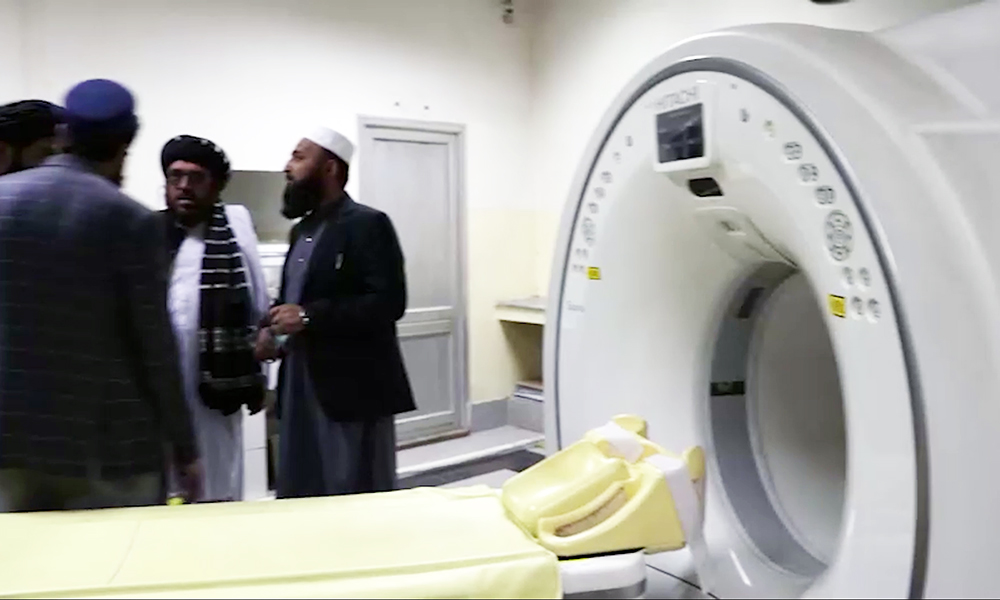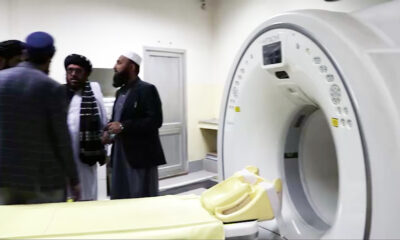Health
Tips to stay hydrated and healthy during Ramadan

During Ramadan, Muslims abstain from food and drink from dawn to dusk but it is important to get proper nourishment between Iftar and Sahari in order to be prepared for the next day – especially for those who need to work and go to school or university.
Healthy habits during the holy month are also very important in order to avoid gaining weight.
Cleveland Medical Center in Abu Dhabi, in the UAE, reports that there are a few simple times to help you stay fit while fasting.
Stay hydrated
The amount of fluids a person needs depends on age, gender, climate and activity level.
According to Cleveland Clinic, adults, on average, need 2 to 3 liters of water each day. So make sure to drink plenty of fluids before the start of the fasting hours. Unsweetened juices or milk are tasty, low calorie alternatives.
Experts warn against too much coffee and tea and soda drinks outside of fasting hours as the caffeine in them causes increased urination. Cleveland Clinic recommends these drinks be limited during the non-fasting hours.
The clinic also suggests that meals are started with broths, soups or stews. Fruits and vegetables such as watermelon, squash or spinach are mostly water and can also help to replace fluids.
Why is this important?
As stated by the clinic, the human body is about 60 percent water and it is vital for bodily functions, including metabolizing and transporting nutrients throughout the body and removing waste.
The amount of water in the body fluctuates – it is lost through urine and sweat and regained from food and drinks.
However, Cleveland Clinic states it is not unusual to become periodically dehydrated while fasting. Dehydration can result in weight loss that is quickly regained when normal eating and drinking habits resume.
Choose healthy options
Hunger tempts us to indulge or eat fast, convenient foods. But according to the Cleveland Clinic, highly processed foods are high in salt, sugar and unhealthy fats, which won’t last long and can increase thirst.
Try a handful of roasted nuts instead of ready-to-eat foods and also try to eat fresh fruit and vegetables.
Eat, rest and exercise strategically
According to clinic experts, planning your activities and meals after breaking your fast will help to refuel you and prepare you for the next day of fasting.
Rest is important, but be sure to stay awake long enough to replenish the fluids and nutrients your body needs.
Eat balanced meals including: bread, cereals and other grains; fruits and vegetables; meat, fish and poultry; milk, yogurt or cheese; and healthy fats.
Focus on foods that are digested slowly and release energy over time. These include food that are high in fiber (e.g. whole grains, fruits and vegetables) and foods containing complex carbohydrates (wheat, beans, lentils, rice, etc.).
It is important to stay active too. Find time to take a walk or do some gentle stretching.
Why is this important?
Weight loss occurs when a person uses more energy than they consume. Some studies on weight loss/gain during Ramadan have shown that energy intake remains the same or increases, despite a decrease in meal frequency.
Health
Azerbaijan urged to help improve capacity of Afghan health workers

Acting Minister of Public Health Qalandar Ebad, in a meeting with Azerbaijan’s ambassador, Ilham Mohammadov, called for the country’s assistance in improving the capacity of Afghanistan’s health workers.
The two sides also discussed cooperation in the health sector, capacity building of Afghan health workers, and Azerbaijan’s role in the health sector and other issues, according to a statement released by the Public Health Ministry.
Azerbaijan’s envoy said that his country seeks to cooperate with Afghanistan in a sustainable manner in the field of health.
In other news, the foundation stone for the construction of oxygen production facility was laid at the Indira Gandhi children hospital in Kabul.
Officials of the Ministry of Public Health said that the facility will be built with the financial and technical assistance of the World Health Organization, and with the capacity to produce 200 cylinders of oxygen daily to meet not only the needs of the hospital, but also other health facilities.
Health
Balkh health officials report sharp increase in number of cancer patients

Balkh Public Health Department officials say there has been a significant increase in the number of patients with cancer in the province.
“In 1401, about 2,613 OPD (out patient department) cases were registered with us. In 1402, these figures were 4,912 cases,” said Ehsanullah Kaliwal, the head of the oncology department at Balkh Regional Hospital.
Some doctors say genetic factors, environmental pollution, arbitrary use of medicines, and excessive consumption of meat were reasons for the sharp increase.
One doctor said cancer was also hereditry.
However, a large percentage of cancer patients in Balkh have stomach cancer. Many of them have appealed for the government to improve treatment facilities.
According to health officials, in the first month of this solar year (April), 423 cancer patients visited this hospital for treatment.
Health
Majority of Afghans with mental disorders are women: officials

Based on last year’s data, 52 percent of people with mental disorders in Afghanistan are women, the Ministry of Public Health said.
However, after the Islamic Emirate took over the country and with the improvement of nationwide security and the provision of better health services, mental disorders have decreased, the ministry said.
“Overall, the mental security of men and women in Afghanistan is not ensured and their mental security is disturbed. According to the figures shared with us, in 2023, 52 percent of the visitors for mental disorders were women,” said Sharaft Zaman Amarkhil, the spokesperson of the Ministry of Public Health.
“Generally speaking, we can say that compared to the past, the instances of mental illnesses have decreased,” he added.
People suffering mental disorders mostly refuse to share their problem, willingly or unwillingly.
“There are many problems at home; We are poor. I finished school, but didn’t find any job,” Ansar, a mentally ill person, said.
According to the World Health Organization (WHO), half of Afghanistan’s population suffers from mental distress.
Factors such as unemployment, poverty, domestic violence, ban on girls’ and women’s education and work, and drugs are said to be key contributors to mental distress.
-

 Sport5 days ago
Sport5 days agoRashid Khan threatens BBL pullout after Australia postpones Afghanistan T20I series
-

 Sport4 days ago
Sport4 days agoAfghanistan Champions League kicks off with grand opening ceremony
-

 Latest News3 days ago
Latest News3 days agoPakistan’s frontiers minister stresses ‘dignified’ return of Afghan refugees
-

 Regional4 days ago
Regional4 days agoIran’s foreign minister downplays drone attack, says Tehran investigating
-

 Latest News5 days ago
Latest News5 days agoTen people killed by floods in Helmand
-

 Business4 days ago
Business4 days agoAfghanistan’s economic prospects are bleak: World Bank
-

 Latest News4 days ago
Latest News4 days agoMore than 800 Afghan refugees deported from Pakistan in two days
-

 Regional2 days ago
Regional2 days agoIranian president lands in Pakistan for three-day visit to mend ties





























